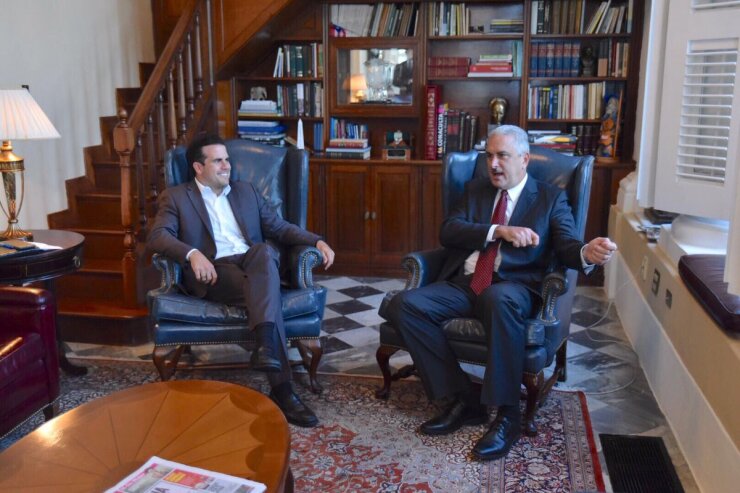Puerto Rico’s creditors may be headed to court after the territory's representatives refused to budge from a fiscal plan limiting debt payment to 24% of the amount due.
Gov. Ricardo Rosselló on Wednesday indicated that the total amount of debt to be paid is unlikely to change from the Oversight Board’s fiscal plan, approved on March 13. Representatives of Rosselló and the board are waiting for the bondholders they are negotiating with to make an offer that observes the the 24% limit, according to a report in El Nuevo Día. The negotiations started Friday with Judge Allan Gropper as a mediator, and may be focused on how payment would be divided among the various bond types.

“If the board wants creditors to willingly assent to receiving only 24% of debt service in the near term, they’re going to have to create an assurance of a better recovery in the long term,” Municipal Market Analytics partner Matt Fabian said in an email. “That probably would take either a new, more trustworthy security than currently exists or more confidence in the island’s long-term economic growth. Both seem very unlikely. In the context of these numbers, it seems unlikely that a negotiated settlement can occur without court involvement.”
The board, government and creditors are negotiating now under the umbrella of a lawsuit stay. The stay, which is part of the Puerto Rico Oversight, Management and Economic Stability Act, is set to end May 1. Many observers predict the board will send debt negotiations to court before then.
“While the Oversight Board and the administration would prefer a restructuring of the debt through the use of Title VI (the out-of-court process to bind dissenting creditors), it seems more likely that they will have to rely on Title III which is modeled more closely on Chapter 9 of the Bankruptcy Code,” said Howard Cure, director of municipal bond research at Evercore Wealth Management.
“Part of the issue is that you now have competing bondholder interests from hedge funds, mutual funds and bond insurers,” Cure said.
The logjam in the private debt negotiations came as violence erupted in San Juan over the debt issue on Monday and Tuesday. Prior to the Puerto Rico Senate and House of Representatives debating a measure to end the Puerto Rico Commission for the Comprehensive Audit the Public Credit, the House and Senate presidents ordered the police to close the Capitol building to the general public. Only those who normally worked in the building and a select group of journalists were allowed to observe the debate and vote on the topic.
The presidents, who are of the same party as Rosselló, were responding to demonstrators calling for the debt “audit” to continue. According to Sen. Pres. Thomas Rivera Schatz demonstrators injured 21 police officers and a handful of others on Tuesday. According to the El Vocero news web site, they threw stones, paint, and water bottles at the police.
On Wednesday morning a Puerto Rico judge, citing the local constitution, ordered the opening of the capitol building to the general public.
The House and Senate approved the ending of the debt audit commission. The approved measure said that the federal and local courts were the correct forum to review or “audit” the debt. Legislators from the New Progressive Party approved the measure while those from other parties and independent legislators voted against it.
In another matter for the legislators, they voted to approve amending the language for a status plebiscite ballot. The new ballot will include the option of Puerto Rico remaining in its current territory status.
��





